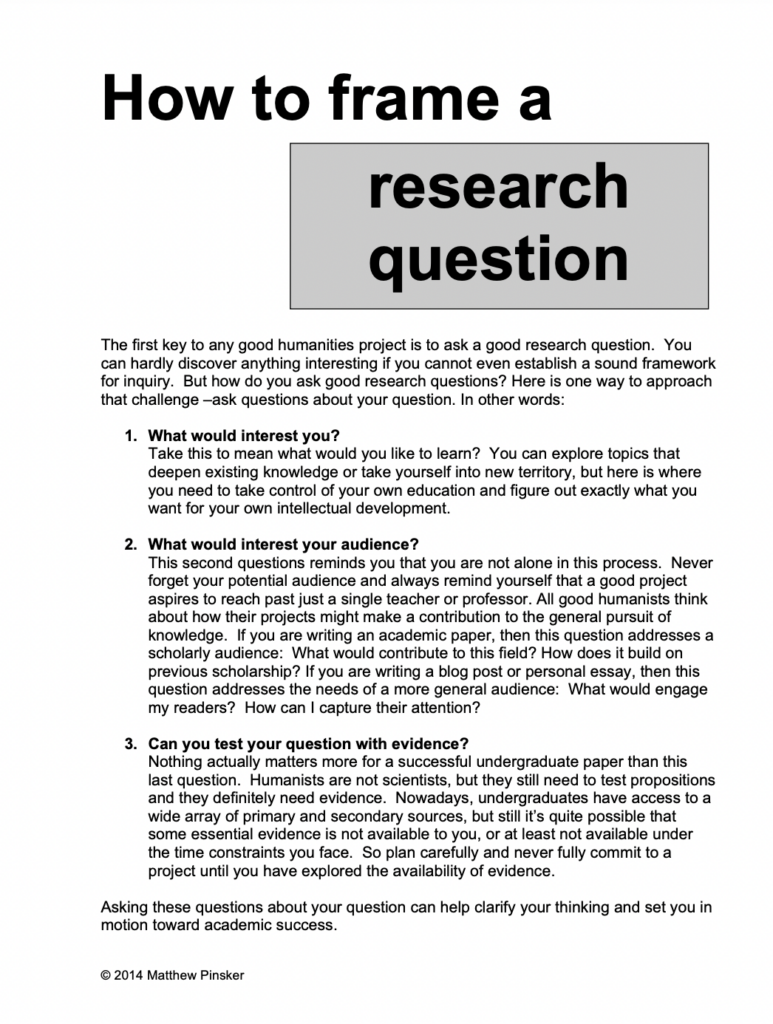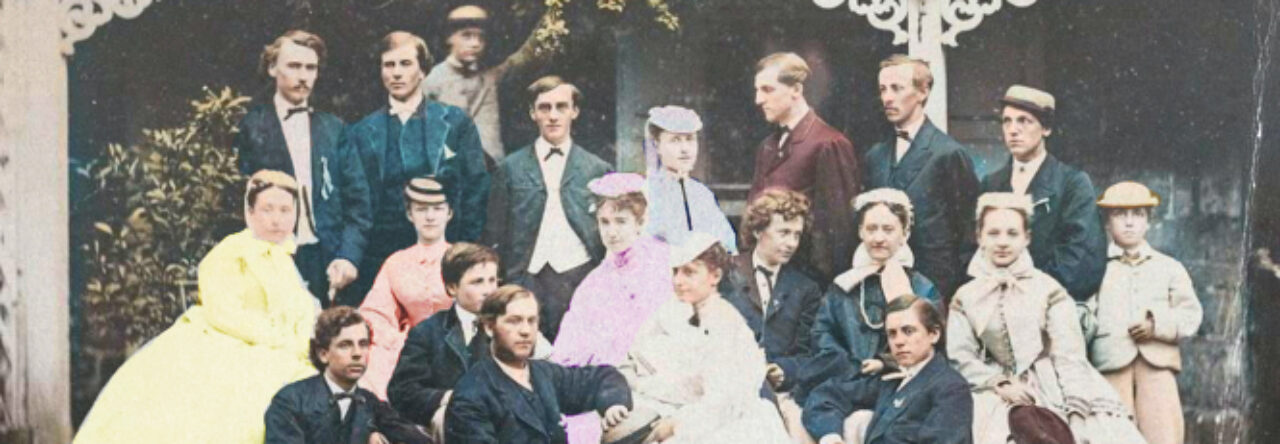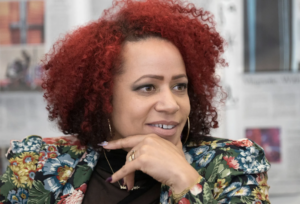“Everything has a history.” —James Grossman, AHA Perspectives, 2015
Essential Question
What is the right way to frame a good historical question?
Discussion Questions
- What did historian Kenneth Jackson mean when he told his students (like Zachary Schrag), “You can find an example of anything.”
- What are some of the key differences and similarities between good essential questions and good research questions?
- Why does Schrag prefer to think about historical interpretations in terms of dialectics?
“The more puzzling the riddle, the greater the value in its solution. To demonstrate such value, historians often frame their theses as dialectics. Dialectic is a Greek term, literally meaning ‘conversation.’ In philosophy, the term describes the process by which thinkers seek the truth by exchanging opposing arguments. Historians use such comparisons of opposites to craft arguments about the past. Indeed, dialectics distinguish mere recitation of facts from interpretive claims about the past. A dialectic is more than a simple assertion that two ideas, events, or statements were different: the word different and its synonyms –diverse, varied, and so on– is too vague. Instead, historians present several distinct types of dialectics to explain debates and the struggles of the past.” –Schrag, p. 57
- Socratic Method (Platonic dialogues)
- Hegelian dialectic (thesis-antithesis-synthesis)
- Marxist class struggle (dialectical materialism)
How does the 1619 Project illustrate an ongoing dialectic about slavery and American history?
Debating Slavery and the Constitution
Nikole Hannah-Jones: “Our founding ideals of liberty and equality were false when they were written. Black Americans fought to make them true. Without this struggle, America would have no democracy at all.” (1619 Project, p. 14)
Gordon Wood: “Although modern historians express frustration with the slowness and ragged nature of the Revolutionaries’ struggles to end slavery in the states, the fact that it had been legal everywhere in colonial North America and had existed for millennia throughout the world make the scale and the unprecedented nature of the anti-slavery movements in the new republics look relatively impressive. Looking back from our present perspective, we find the states’ antislavery efforts to be puny, partial, and disappointing, but from the perspective of colonial society in, say, 1720, when slavery existed everywhere without substantial challenge, the Revolutionary achievement that began a half century later appears extraordinary and exciting. This move to end slavery was brought about by the efforts of many blacks as well as whites.” (Power and Liberty, p. 113)
Nikole Hannah-Jones: “Conveniently left out of our founding mythology is the fact that one of the primary reasons [some of] the colonists decided to declare their independence from Britain was because they wanted to protect the institution of slavery.” (1619 Project, p. 18)
Gordon Wood: “With independence, nearly all the newly independent states, including Virginia, began moving against slavery, initiating what became the first great antislavery movement in world history.” (Power and Liberty, p. 112)
For more information on the 1619 Debate:
2020 MSNBC segment on 1619 Project
- Nikole Hannah-Jones, Intro 1619 Project, NY Times Magazine (2019)
- 1619 Project, New York Times, August 19, 2019. [WEB]
- Historians’ Letter to the Editor and Response, NY Times, Dec. 2019
- Pulitzer Center, 1619 Project Education Materials Collection
- James Oakes, What the 1619 Project Got Wrong, Catalyst (Fall 2021)
- Jon Meacham, Review of Edward Larson’s American Inheritance, NY Times, Jan 17, 2023
Advice for Framing Questions 

